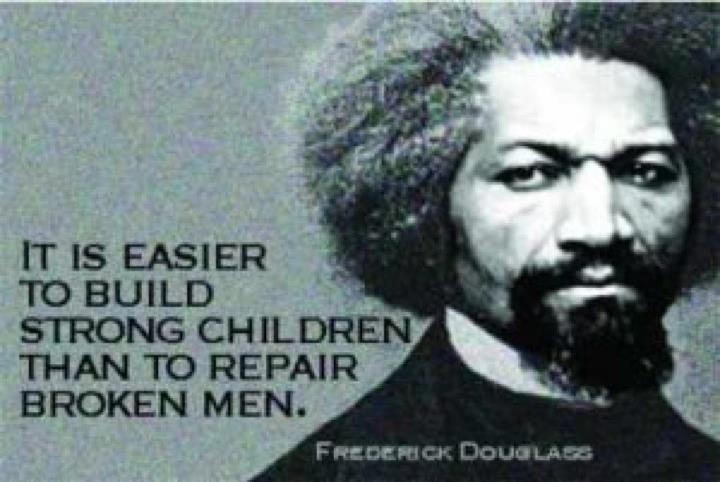By: Annabel Moore & Camille Settles
Early Life:
Frederick Douglass was born in February 1818 in Maryland from a black mother and a white father. He lived with his grandparents and his aunt, rarely getting to see his mother before she died. He learned of the realities of slavery at this time, being a part of many brutal situations that the slaves had to go through. He was often cold and hungry. He moved to Baltimore for a short time, and this is where he discovered the abolitionists and their purpose. He was eventually sent back to the country to the hard slave life again where he was "broken in body, soul, and spirit." Douglass was again sent back to Baltimore, and he made the decision to be free. He fled to New York City on September 3, 1838. He settled in Massachusetts with his new wife and began his fight for abolition.
Douglass's Efforts:
Frederick Douglass was sure to educate himself about abolition. He joined many institutions against slavery, and attended many meetings addressing the matter. He gave a speech at the Massachusetts Anti-Slavery Society's annual meeting, and was then asked to become a lecturer for the society for many years. Douglass also gave his share of opinions to Abraham Lincoln during the Civil War, influencing many of his decisions on how to handle slavery. Douglass recruited African Americans for the Union Army in the war, and he continued to fight for the rights of not only blacks, but women too, after the war.
Douglass's Keys to Success:
Douglass was obviously a very successful man, and he definitely knew how to handle some of the toughest situations. The following are Douglass's ideas to how to make it and leave a mark on the world in a positive way:
- Believe in yourself.
- Take advantage of every opportunity.
- Use the power of spoken and written language to effect positive change for yourself and society.
Because Douglass was such an outgoing person and put all that he had into everything he did, there is no way to narrow his life down to just one occupation. He was an Abolitionist, Suffragist, Author, Editor, Diplomat, Orator, and Statesman.

Writings:
After escaping from slavery, he became an active campaigner and wrote many autobiography's. His first autobiography was called Narrative of The Life of Fredrick Douglass, an American Slave. It became a bestseller immediately and presented the reality's of slavery. People saw slavery for the awful thing that it really was. Nothing was sugarcoated. Some other autobiographies that he wrote were called My Bondage and My Freedom and Life and Times of Fredrick Douglass. He also was mentioned in a weekly journal written by William Lloyd Garrison called the Liberator. Garrison's journal inspired Douglass to begin writing a newspaper called The North Star.

This is The North Star's slogan:
"Right is of no Sex--Truth is of no Color--God is the Father of us all, and we are all Brethren.
William Lloyd Garrison was also an avid abolitionist, and also started his own newspaper to help advocate emancipation and equality to all Americans.
ReplyDeleteTrey&Ben shoutout to all the pears
The American Colonization Society
ReplyDeleteWe, as a Society, agree with you that the slaves should be freed. We just believe that they should be free in Africa instead of America. Thank you for your efforts in the Abolitionist Movement.
By: Madeleine Edge and Emma Hyland
Second Great Awakening
ReplyDeleteAs a movement, we believe that your teachings would be a very nice addition to ours, and we would like for you to come preach in a few churches if you don't mind.
Isaac Hamilton
Fuller, I like Douglass, am an avid supporter of human rights. Douglass was one of the first major abolitionists and I was one of the first feminist. I share several of Douglass' ideas especially on education.
ReplyDeleteBy: Morgan Ballard and Payton Ford